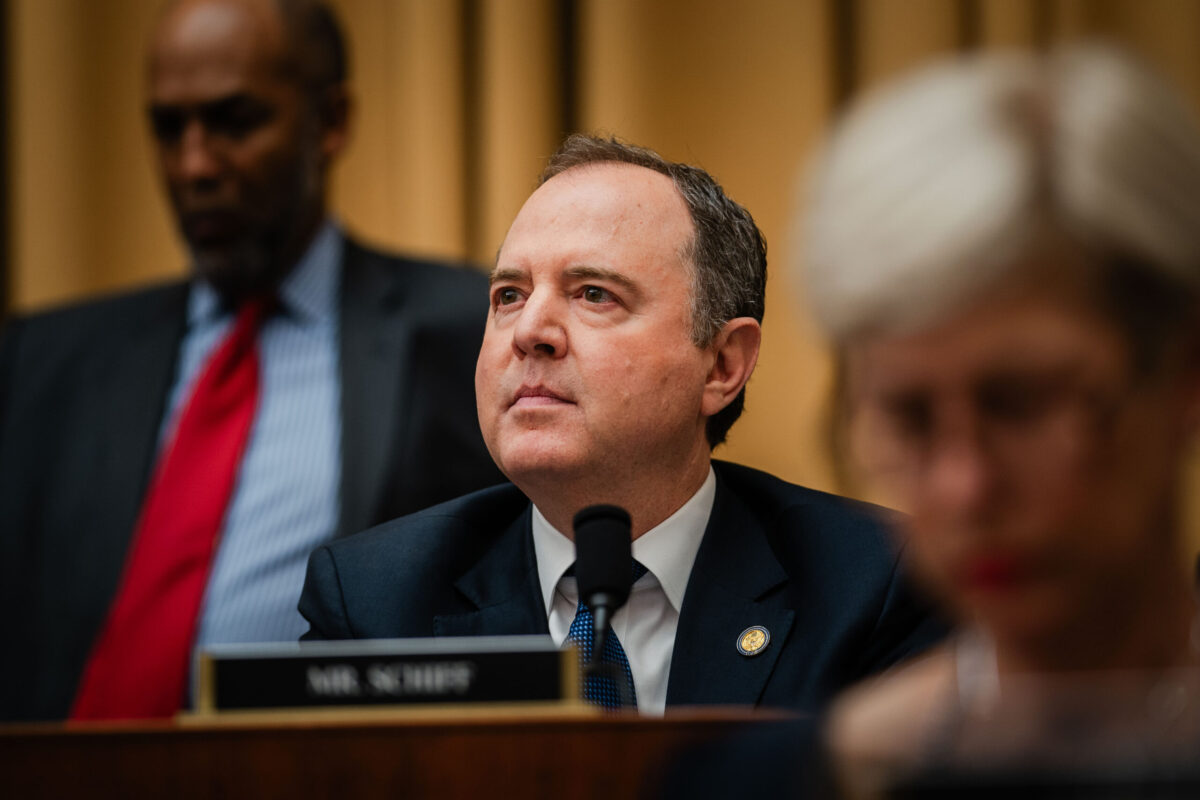$874B Defense Budget Approved for House Hearings Next Week.
The House Armed Forces Committee Unanimously Adopts Proposed $874.2 Billion FY24 National Defense Budget
After nearly five months of hearings, the House Armed Forces Committee’s six subcommittees on June 13 quickly and unanimously adopted their components of the proposed $874.2 billion fiscal year 2024 (FY24) national defense budget.
“It is only because of the unimaginable sacrifices made by our nation’s brave men and women in uniform that our nation remains free—it’s crucial that we ensure that our service members have access to the resources and weapons they need to be successful on any battlefield,” House Armed Services Committee Chair Mike Rogers (R-Ala.)
The next stop for the draft National Defense Authorization Act (NDAA), filed as House Bill 2670, is its first hearing before the entire 59-member House Armed Services Committee on June 21. From there, it moves on to the Senate for adoption before FY24 begins on Oct. 1.
Highlights of the Proposed Budget
- $841.5 billion for the Department of Defense (DOD), an increase of nearly $26 billion, or 3 percent, over the FY23 enacted NDAA
- $32.26 billion for the Department of Energy’s (DOE) nuclear weapons programs
- Amphibious warship for the Marine Corps
- Authorization to build 13 Virginia class attack submarines over the next five years instead of the proposed 10
- Boosted funding for Air Force F-15 and F-16s
- 5.2-percent pay raise for those serving in the armed services
The Republican-led House panels essentially retained the Biden administration’s overall budget request but shifted money around within the spending plan, adding $326 million to DOD programs while trimming $386 million from DOE allocations to arrive at nearly the same top-line figure.
While that may sound relatively simple, there are many details within the details of the exhaustingly detailed line-by-line funding tables that span dozens of pages at the end of the 412-page draft NDAA.
“The FY24 NDAA puts our national security first by boosting innovation, providing for our warfighters, and focusing on our defense industrial base–supplying our military with the tools necessary to counter the unprecedented threats our nation faces from China, Russia, North Korea, and Iran,” Rogers said.
The proposed budget also significantly increases funding for research and development of new weapons systems incorporating artificial intelligence, hypersonic missiles, and other emerging technologies while bolstering funding for military housing, among other quality-of-life enhancements.
 5″ common hypersonic missile that will be fielded by both services, in Promontory, Utah, on Oct. 28, 2021.” />
5″ common hypersonic missile that will be fielded by both services, in Promontory, Utah, on Oct. 28, 2021.” />Strategic Forces
During the committee’s Strategic Forces Subcommittee hearing, chair Rep. Doug Lamborn (R-Colo.) said the panel’s proposed spending plan “first and foremost modernizes the nation’s strategic deterrent” and seeks to accelerate the development offensive hypersonic weapons as well as in defending against them.
“This is one area where the United States lags behind China and Russia, and closing the gap has been one of my priorities as chairman,” he said.
To do so, “we must expand our test infrastructure and add additional range space” for developing the weapons systems,” Lamborn said.
The subcommittee’s proposed budget includes “an integrated schedule” for the LGM-35 Sentinel, the future U.S. land-based intercontinental ballistic missile system (ICBM) and requires DOD to notify Congress about nuclear cooperation between Russia and China.
Ranking member, or the panel’s lead Democrat, Rep. Seth Moulton (D-Mass.), said the Strategic Forces Committee’s realm of concern “is front and center” in the news “whether it be the criminal war being waged by war criminal Vladimir Putin [and his] threats to wage a nuclear war, North Korea’s ICBM test launches, or the dramatic and unprecedented expansion of China’s ICBM fleet, not to mention their weaponization of space.”
The nation’s nuclear deterrent remains as vital, and as critical, as ever, he said. “One example of proof is the fact that over a year into the war in Ukraine, despite Putin’s huge losses and persistent threats, the conflict has remained conventional.”
But there is “aging infrastructure and weapons systems across the nuclear complex” that the proposed budget addresses, Moulton said.
“The space domain is evolving at a much faster pace” than any other theater of operation, he said. “Space had been a domain reserved for monitoring, communicating, and exploring, but no more. In just the last several months, we have seen demonstrations of both Russian and Chinese capacities that are specifically designed and deployed to destroy [United States] space assets.”
The United States must “employ a more robust and resilient architecture,” Moulton said, adding the nation “needs a coherent and unclassified strategy when it comes to space in order to explain the threats and stakes to the American people, which has long been a position of this committee and Congress.”

Cyber and People
The House Armed Forces Committee’s Cyber, Information Technologies, and Innovation Subcommittee wasted little time—less than three minutes—in adopting its component of the budget.
The plan creates a pilot program on near-term quantum applications, which requires the DOD to work with “the quantum industry to identify near-term problems that could be solved with quantum computing” and includes metrics to evaluate the Pentagon’s “ability to transition technology successfully.”
The subcommittee’s proposed budget addresses cybersecurity, network security, and requires DOD to study how to better use National Guard and Reserve forces in cyberspace activities.
“In this strategic competition,
" Conservative News Daily does not always share or support the views and opinions expressed here; they are just those of the writer."





